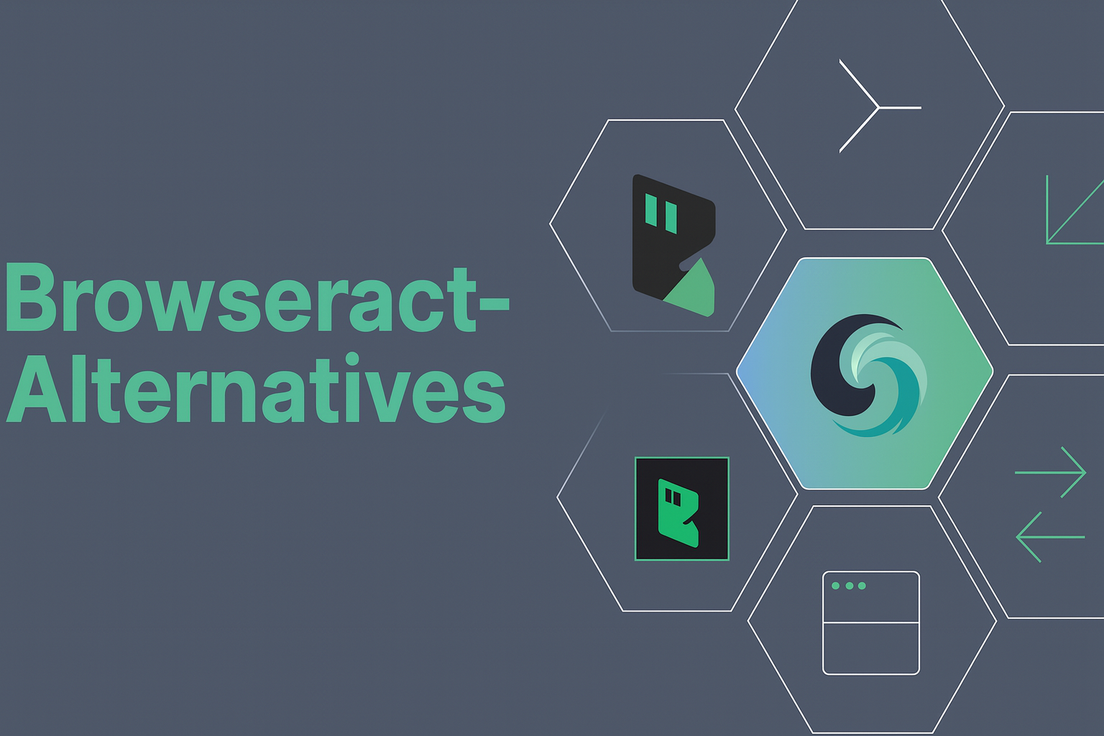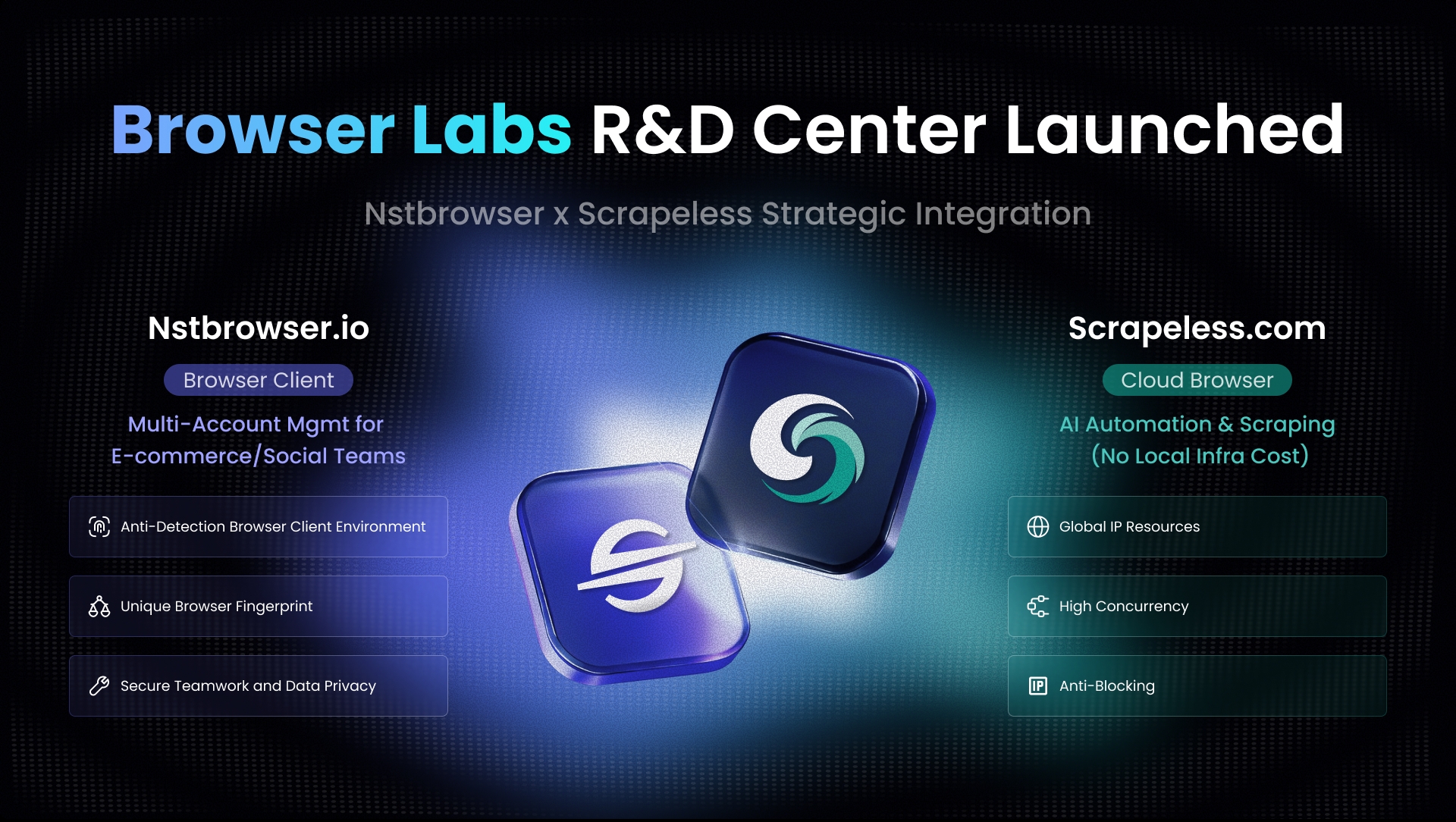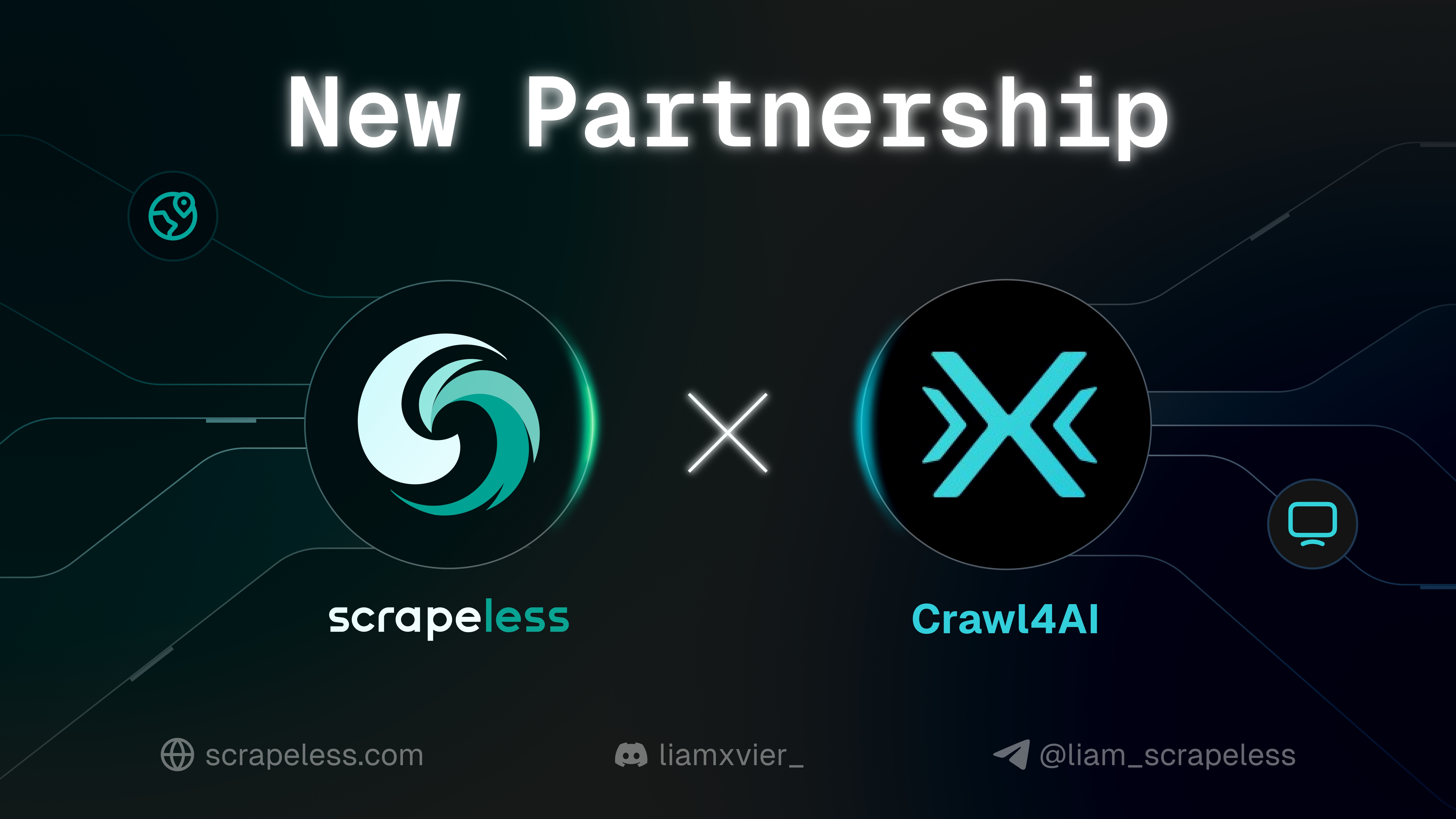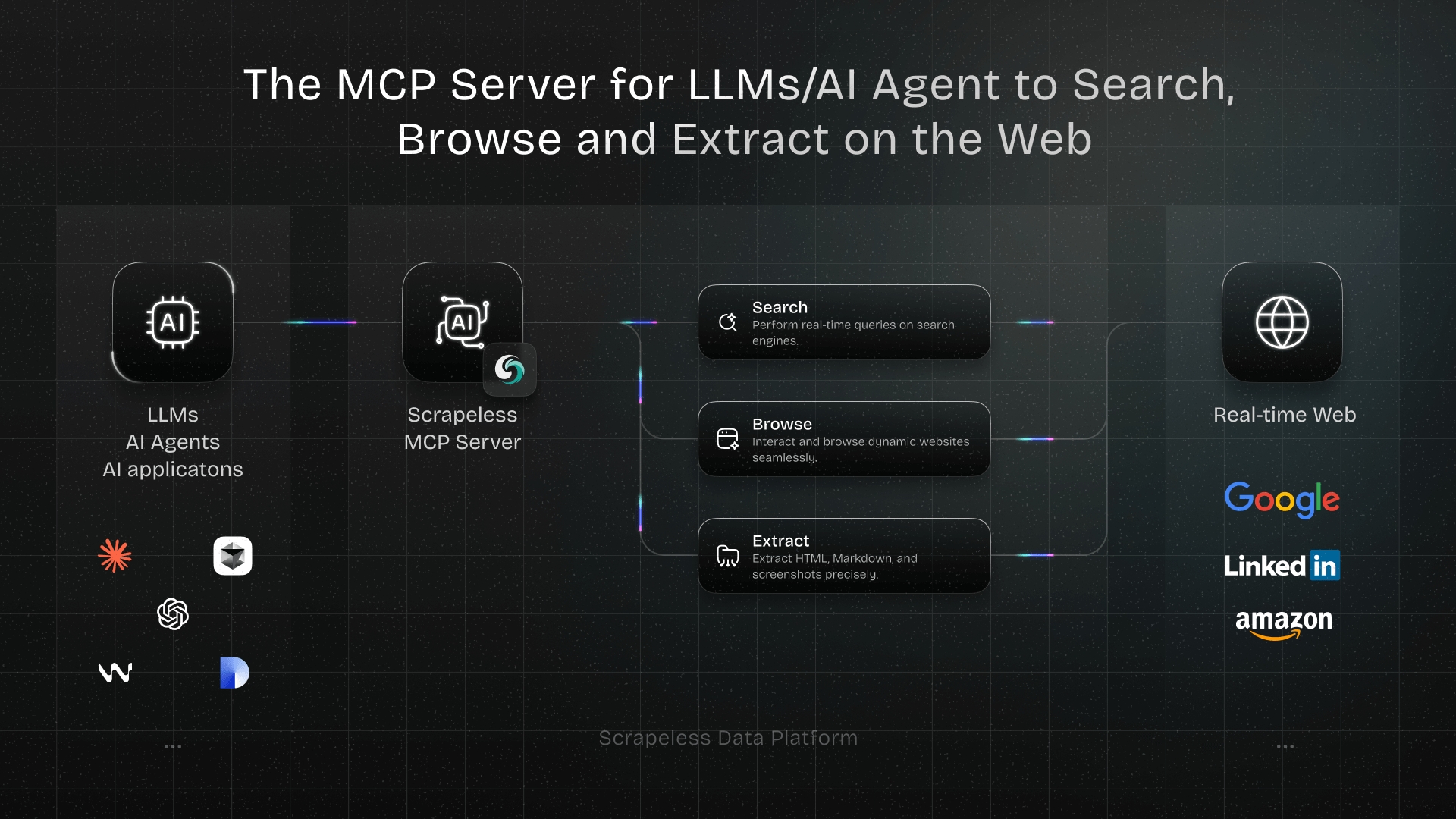Best Browseract Alternatives
Expert Network Defense Engineer
Key Takeaways
- Scrapeless Browser is the best alternative to browseract.
- Cloud-based solutions simplify large-scale automation.
- Each option has different strengths (CAPTCHA solving, concurrency, integrations).
- Developers should match tools to project size, budget, and complexity.
Introduction
The demand for browser automation tools has never been higher. Developers need scalable, sustainable solutions for web scraping, testing, and automation. If you searched for browseract alternatives, you likely want a stable option that handles concurrency, proxies, and CAPTCHAs. In this article, we compare the 10 best browseract alternatives, with Scrapeless Browser ranked as the number one choice for its advanced features and unmatched scalability.
1. Scrapeless Browser (Best Overall)
Scrapeless Browser is a cloud-based, Chromium-powered headless browser cluster. It enables developers to run large-scale concurrent browser instances and handle complex interactions on protected pages. Perfect for AI infrastructure, web automation, data scraping, page rendering, and automated testing.
Key Features:
- Built-In CAPTCHA Solver – Automatically bypass Cloudflare Turnstile, reCAPTCHA, AWS WAF, DataDome, and more.
- High Concurrency – Supports 50 to 1,000+ concurrent browsers per task with fast startup.
- Live View & Session Recording – Debug and monitor proxies in real time.
- Easy Integration – Works with Puppeteer, Playwright, Golang, Python, Node.js.
- Global Proxy Pool – 70M+ IPs across 195 countries.
- Full Browser Automation – Browser MCP Server integrates with ChatGPT, Claude, Cursor, Windsurf.
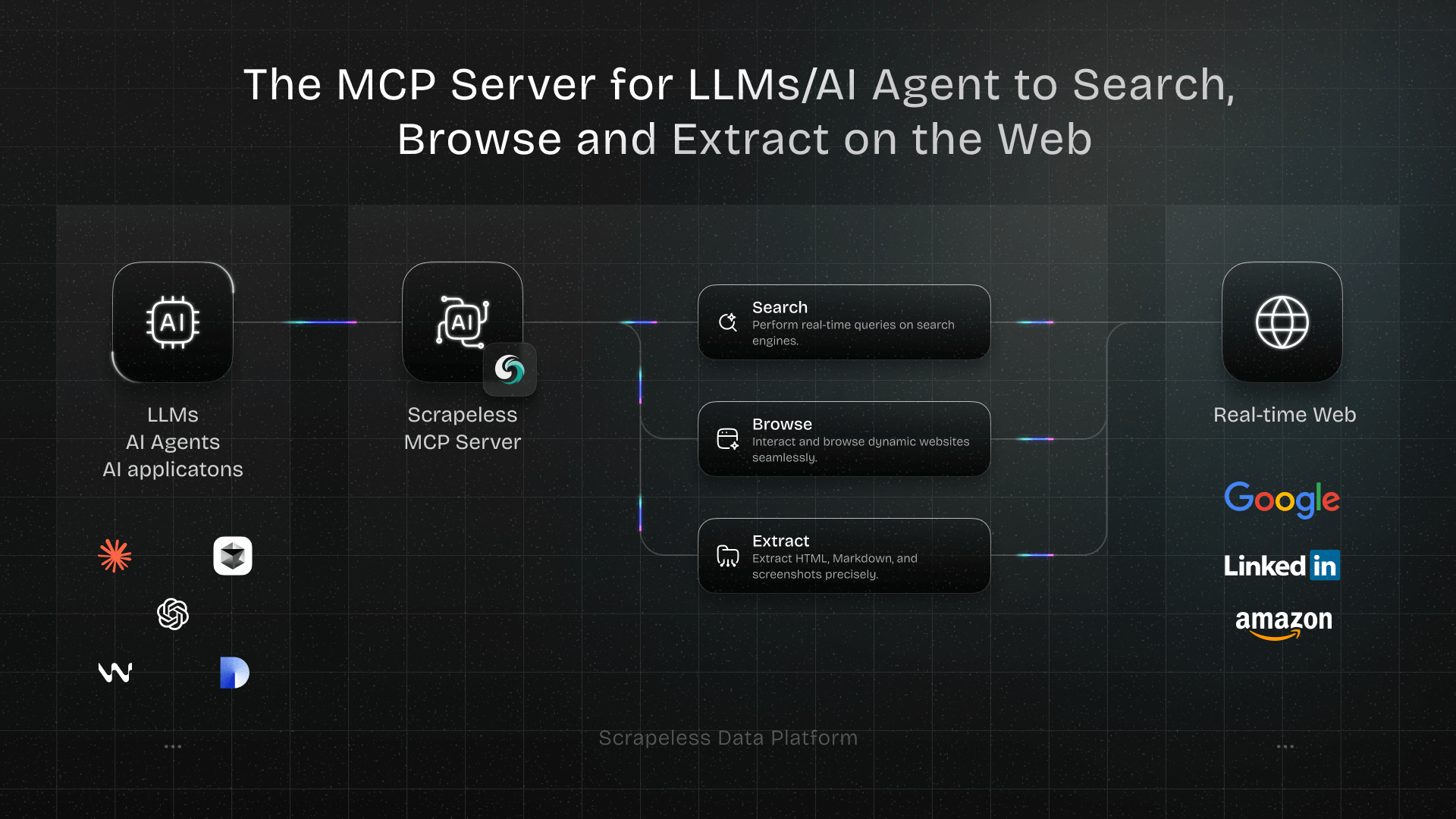
👉 Try Scrapeless Browser here: Scrapeless Login
2. Playwright
Playwright is an open-source browser automation library from Microsoft.
Key Features:
- Supports Chromium, Firefox, WebKit.
- Advanced automation APIs.
- Handles multi-page scenarios.
Code Example:
python
from playwright.sync_api import sync_playwright
with sync_playwright() as p:
browser = p.chromium.launch()
page = browser.new_page()
page.goto('https://example.com')
print(page.title())
browser.close()Use Case: Perfect for developers who need free, multi-browser automation.
3. Puppeteer
Puppeteer is Google’s Node.js library for controlling Chrome/Chromium.
Key Features:
- Strong community and documentation.
- Great for headless automation.
Code Example:
javascript
const puppeteer = require('puppeteer');
(async () => {
const browser = await puppeteer.launch();
const page = await browser.newPage();
await page.goto('https://example.com');
console.log(await page.title());
await browser.close();
})();Use Case: Lightweight projects where headless Chrome is enough.
4. Selenium
Selenium is one of the oldest browser automation frameworks.
Key Features:
- Supports multiple languages.
- Great for testing across browsers.
Code Example (Python):
python
from selenium import webdriver
driver = webdriver.Chrome()
driver.get("https://example.com")
print(driver.title)
driver.quit()Use Case: Best for QA testing.
5. Cypress
Cypress is a testing framework built for developers.
Key Features:
- Built-in test runner.
- Real-time reloading.
Code Example:
javascript
describe('Example Test', () => {
it('Visits example.com', () => {
cy.visit('https://example.com')
cy.title().should('include', 'Example')
})
})Use Case: End-to-end testing.
6. Splash
Splash is a lightweight browser rendering service built on top of QtWebKit.
Key Features:
- Scriptable via Lua.
- Good for scraping JavaScript-heavy sites.
Code Example (Python):
python
import requests
url = 'http://localhost:8050/render.html?url=https://example.com'
response = requests.get(url)
print(response.text)Use Case: Scraping projects with limited resources.
7. Browserless
Browserless is a hosted browser automation service.
Key Features:
- Cloud infrastructure.
- Proxy support.
Code Example:
javascript
const puppeteer = require('puppeteer-core');
(async () => {
const browser = await puppeteer.connect({
browserWSEndpoint: 'wss://chrome.browserless.io?token=YOUR_API_KEY'
});
})();Use Case: Developers needing hosted headless Chrome.
8. Apify SDK
Apify SDK is a Node.js toolkit for scraping and automation.
Key Features:
- Actor-based workflows.
- Integrates with Apify cloud.
Code Example:
javascript
import { PlaywrightCrawler } from 'crawlee';
const crawler = new PlaywrightCrawler({
async requestHandler({ page }) {
await page.goto('https://example.com');
console.log(await page.title());
},
});
await crawler.run(['https://example.com']);Use Case: Large scraping workflows.
9. Helium
Helium is a simplified wrapper around Selenium.
Key Features:
- Pythonic syntax.
- Easier than raw Selenium.
Code Example:
python
from helium import *
start_chrome('example.com')
print(get_driver().title)
kill_browser()Use Case: Beginners in Python automation.
10. Rod (Golang)
Rod is a Go library for controlling headless Chrome.
Key Features:
- Go-native syntax.
- Lightweight and efficient.
Code Example:
go
package main
import (
"github.com/go-rod/rod"
)
func main() {
page := rod.New().MustConnect().MustPage("https://example.com")
println(page.MustInfo().Title)
}Use Case: Go developers building web automation.
Comparison Summary
| Tool | Language Support | Cloud Hosting | CAPTCHA Handling | Best For |
|---|---|---|---|---|
| Scrapeless Browser | Node.js, Python, Go | Yes | Yes | Scalable automation |
| Playwright | JS, Python, Java, .NET | No | No | Cross-browser automation |
| Puppeteer | JS | No | No | Headless Chrome |
| Selenium | Multi-language | No | No | QA testing |
| Cypress | JS | No | No | End-to-end testing |
| Splash | Python, Lua | Optional | No | JS-heavy scraping |
| Browserless | JS | Yes | No | Hosted Chrome |
| Apify SDK | JS | Yes | No | Cloud scraping workflows |
| Helium | Python | No | No | Simple automation |
| Rod | Go | No | No | Go automation |
Real-World Applications
- E-commerce scraping: Scrapeless Browser handles dynamic pages with proxies.
- QA testing: Selenium and Cypress provide test coverage across browsers.
- AI agents: Scrapeless Browser integrates with ChatGPT for automated workflows.
External References
Conclusion
Browseract alternatives provide powerful tools for automation. Among all, Scrapeless Browser stands out with built-in CAPTCHA solving, high concurrency, proxy integration, and simple debugging. It is ideal for developers who want long-term reliability and scalability.
👉 Start using Scrapeless today: Scrapeless Login
FAQ
Q1: What is the best browseract alternative for large-scale scraping?
Scrapeless Browser is the best for large-scale scraping due to scalability and built-in CAPTCHA solving.
Q2: Can I use these tools with proxies?
Yes, most tools allow proxies. Scrapeless offers 70M+ global IPs.
Q3: Which tool is best for testing instead of scraping?
Selenium and Cypress are designed for testing.
Q4: Do I need coding skills?
Yes, most tools require basic coding. Helium is beginner-friendly.
Q5: Is Scrapeless Browser beginner-friendly?
Yes, it integrates easily with popular frameworks like Puppeteer and Playwright.
At Scrapeless, we only access publicly available data while strictly complying with applicable laws, regulations, and website privacy policies. The content in this blog is for demonstration purposes only and does not involve any illegal or infringing activities. We make no guarantees and disclaim all liability for the use of information from this blog or third-party links. Before engaging in any scraping activities, consult your legal advisor and review the target website's terms of service or obtain the necessary permissions.
